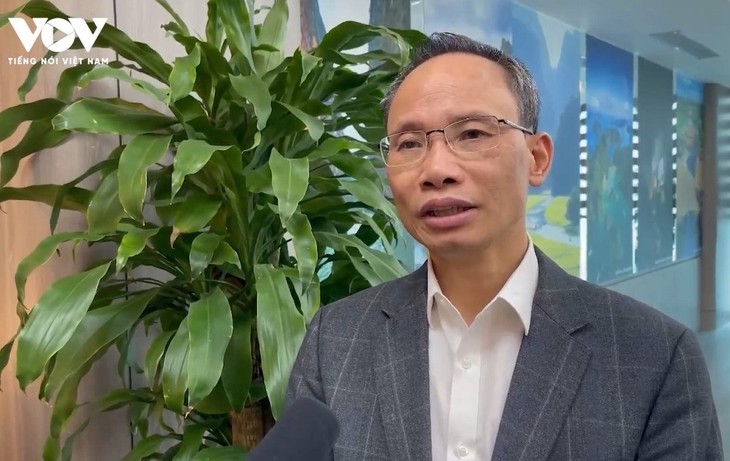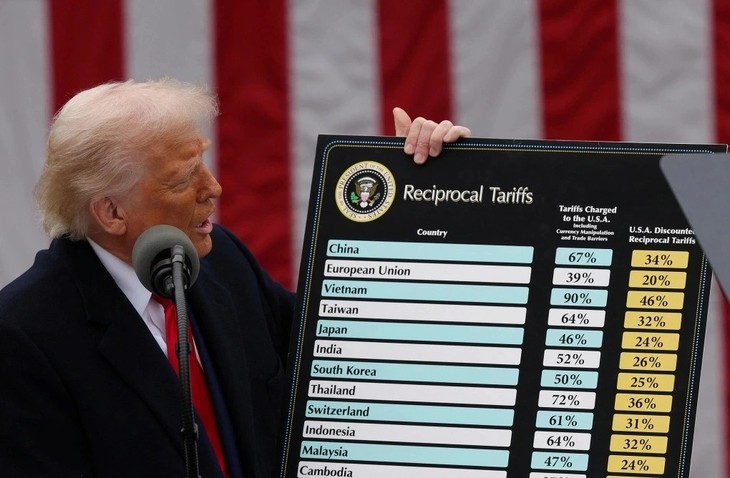(VOVWORLD) -Vietnamese trade officials and industry associations are working in response of the US’s announcement of 46% tariff rates applied to Vietnamese imports, which will take effect from April 9.
 Economist Can Van Luc. Photo: VOV Economist Can Van Luc. Photo: VOV |
Experts said many Vietnamese industries including wooden furniture, textiles, electronic components or seafood will be severely affected. The Import-Export Department at the Ministry of Industry and Trade, and industry associations, have met to assess the situation, develop timely response plans, leaving open the possibility of negotiations.
But economist Can Van Luc has a positive view, saying “It may be affected and of course there will be a reaction. However, not too big. We should remember that people's current demand for domestic goods is increasing, especially when Vietnam's economy is growing well, people's income is rising, and there’s stronger confidence in higher consumption.”
 The US President holds a chart showing the reciprocal import tariffs applied to different countries. Photo: Reuters The US President holds a chart showing the reciprocal import tariffs applied to different countries. Photo: Reuters |
Leaders of other countries have voiced their first reactions to the new tariffs. Canadian Prime Minister Mark Carney announced that they will retaliate against US tariffs to protect Canadian workers.
Australian Prime Minister Anthony Albanese told reporters in Melbourne, shortly after Trump revealed the sweeping new tariffs, "The administration's tariffs have no basis in logic and they go against the basis of our two nations' partnership," "This is not the act of a friend."
"The Australian people have every right to view this action by the Trump administration as undermining our free and fair-trading relationship and counter to the shared values that have always been at the heart of our two nations' longstanding friendship. This will have consequences for how Australians see this relationship," Albanese said.
Trump auto tariffs could cut Japan's GDP by 0.3%, according to the Japan External Trade Organization, who said the tariffs will also have a damaging trickle-down effect on companies in the auto industry supply chain.
Chief Cabinet Secretary of Japan Hayashi Yoshimasa said “The government has been, is and will continue to carefully analyze the content and impacts of the US tariff policy on Japan. We will continue to strongly request the US to revise its current tariff policy.”
Spanish Prime Minister Pedro Sánchez declared that he would retaliate decisively and said that Europe would defend itself, act quickly, reasonably and unitedly. Leaders of Sweden, Italy, Ireland, and Poland said they do not want a trade war.